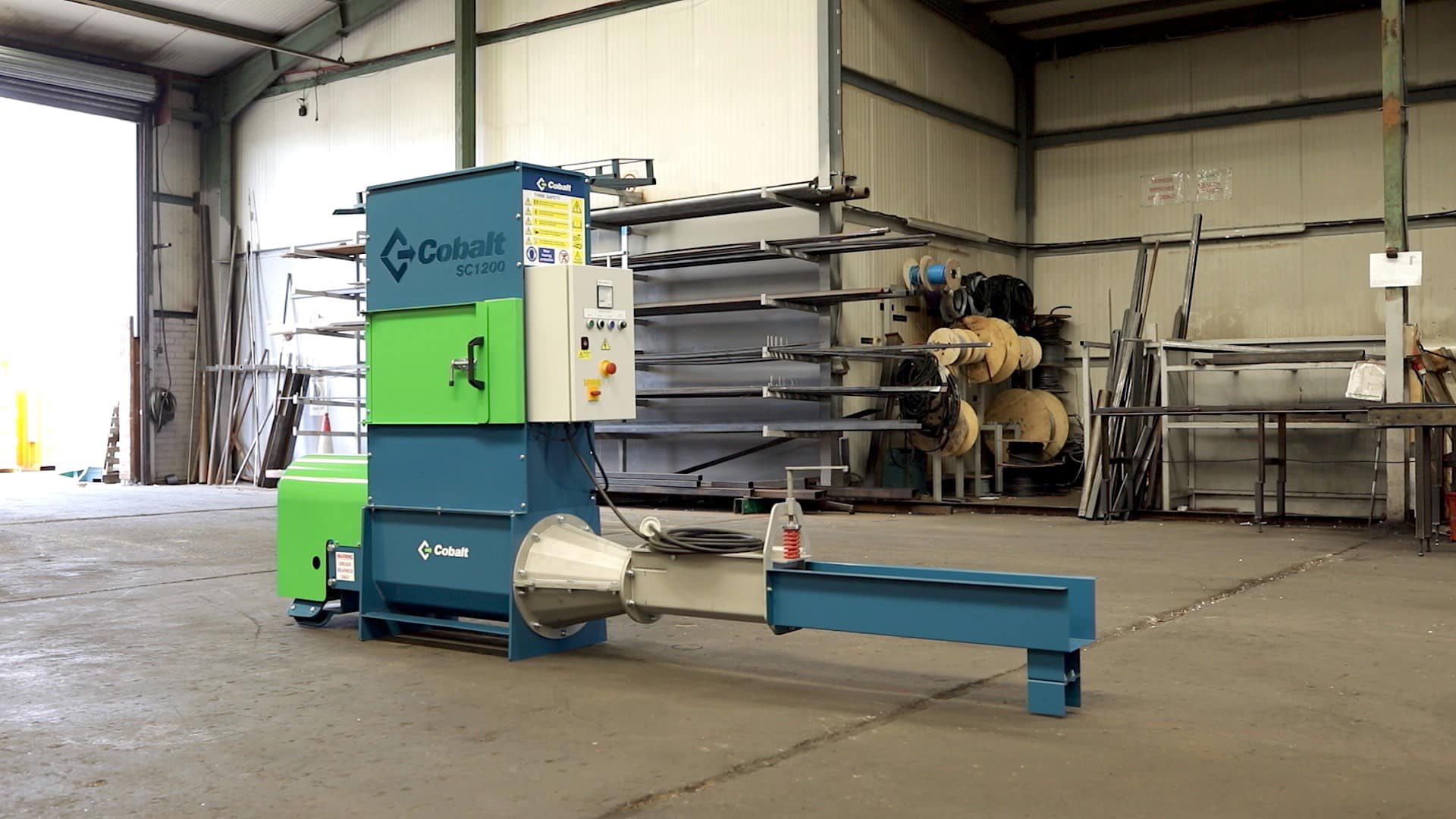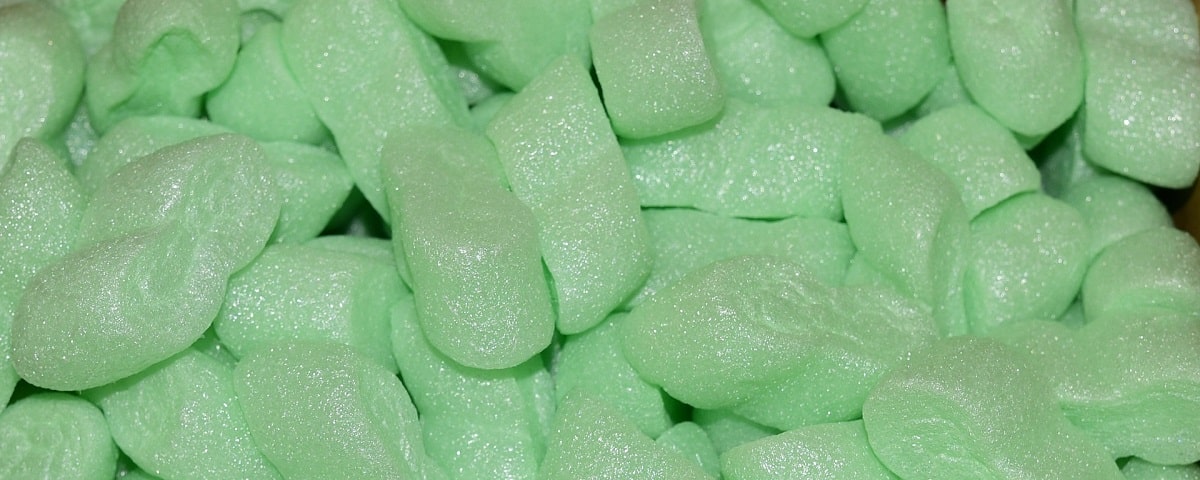At Greenbank, we understand the importance of finding the perfect solution for your business’s waste management needs. This blog post highlights our range of polystyrene compactors, each designed for different waste volumes and recycling requirements. But how do you determine which polystyrene compactor is the ideal fit for your business?
In this comprehensive buying guide, we’ll explore the key factors to consider when purchasing a polystyrene compactor, as well as a list of pros and cons associated with these machines, enabling you to weigh the benefits against the potential limitations. But first, let’s quickly cover what a polystyrene compactor is and why your business needs one.
What is a Polystyrene Compactor and Why You Need One
Polystyrene compactors are specialised waste management machines designed to efficiently reduce the volume of waste polystyrene. These compactors offer businesses an effective solution for handling and recycling discarded polystyrene materials such as fish boxes and packaging from white goods.
Polystyrene compactors first shred the polystyrene material, followed by the application of pressure through a powerful hydraulic system. This process significantly reduces the size of the waste, making it more manageable and easier to handle.
Investing in a polystyrene compactor brings numerous benefits to your business. Here’s a quick summary of the advantages you can expect:
Space Saving: By compressing the material, these compactors can free up valuable storage space in your facility, optimising your storage capacity for other operational needs.
Time Saving: Dealing with bulky and loose polystyrene waste can be time-consuming and labour-intensive. With a polystyrene compactor, you can streamline your waste management process and save valuable time. Compact polystyrene blocks or briquettes are easier to handle, transport, and store, leading to increased operational efficiency.
Cost Saving: Polystyrene waste takes up a significant amount of space in skips or wheelie bins. By compacting it, you can reduce the space required for storage, potentially lowering waste collection costs. Additionally, denser material allows for more efficient loading of waste collection vehicles, reducing the frequency of pickups and the associated costs.
Revenue Generating: Compact polystyrene blocks can be sold to recycling facilities, creating a valuable revenue stream for your business.
Positive Environmental Impact: By recycling your polystyrene waste, you’d be minimising the amount of waste sent to landfills. Additionally, compacting polystyrene waste reduces the carbon footprint associated with its transportation and disposal – demonstrating your business’ commitment to sustainability and responsible waste management.
Factors to Consider When Choosing a Polystyrene Compactor
When selecting a polystyrene compactor for your business, several important factors should be taken into consideration. By carefully evaluating these factors, you can ensure that the chosen compactor aligns with your waste management needs and operational requirements.
Why sure what your waste management needs are? Take advantage of our free waste audit.
Here are the key considerations to keep in mind:
Waste Volume: The amount of polystyrene waste your business generates is a crucial factor in determining the capacity of the compactor you need. Higher waste volumes require larger capacity compactors, while moderate volumes may be adequately managed by smaller models.
We offer a range of polystyrene compactors – for smaller waste volumes we’d recommend the SC1200, for mid-sized business’ the SC2100 would be most suitable and lastly, for companies with large volumes of waste polystyrene, the SC3100 EPS compactor would be recommended.
Space Availability: Compact models like the SC1200 are suitable for businesses with limited space, while larger models like the SC2100 and SC3100 are ideal for those with more generous floor space. Please ensure that the chosen compactor can be accommodated without hindering workflow or compromising safety.
Budget Considerations: While the investment cost of a polystyrene compactor is an important consideration, it is equally crucial to evaluate the potential long-term savings it can provide.
By compacting polystyrene waste, businesses can reduce waste storage requirements, optimise waste collection frequencies, and generate revenue by selling compacted blocks to recyclers. Assess the potential cost savings and revenue generation opportunities to make an informed financial decision.
Powering the Compactor: Ensuring that you have the correct power supply to operate the compactor is vital for its efficient performance. We provide specifications and requirements for each compactor model, including the power supply needed. Refer to the below table to determine the appropriate power supply for your chosen model.
| Model | Power Supply |
| SC1200 | 16Amp, 400V, 3P+N+E |
| SC2100 | 32Amp,400V,3P+N+E,50Hz |
| SC3100 | 45 AMP DOL Motor Rates Fuse |
Pros and Cons of Polystyrene Compactors
Investing in a polystyrene compactor offers numerous benefits for businesses looking to improve their waste management practices. However, it is essential to consider both the advantages and potential limitations of these machines. Here are the pros and cons to help you make an informed decision:
Pros:
1) Space-Saving: Polystyrene compactors can significantly reduce the volume of polystyrene waste, often by up to 98%. By compressing and densifying the material, compactors optimise storage space, allowing businesses to utilise their premises more efficiently.
2) Time-Saving: Polystyrene compactors save staff time. Instead of handling and disposing of bulky, uncompressed polystyrene, employees can quickly and easily feed the waste into the compactor, streamlining operations.
3) Cost-Saving: Compact polystyrene requires less storage space, reducing the need for additional waste storage solutions such as extra wheelie bins. With fewer disposal trips required, businesses can save on waste management costs, including transportation and landfill fees.
4) Revenue Generation: Compacted polystyrene briquettes can be sold to recyclers, allowing businesses to generate additional revenue through rebates or other arrangements, contributing to their bottom line.
5) Environmental Impact: Recycling polystyrene is vital for reducing landfill waste and minimising its environmental impact. By compacting polystyrene and enabling its recycling, businesses actively participate in sustainable waste management practices and reduce their carbon footprint.
Cons:
1) Future Volume Consideration: It is important to anticipate potential growth in waste production volume. If your business’s polystyrene waste increases significantly in the future, you may need to upgrade to a larger compactor. We recommend considering your long-term waste management needs to ensure the chosen compactor accommodates future growth effectively.
Conclusion
Investing in a polystyrene compactor can bring significant benefits to businesses looking to improve their waste management practices. By reducing the volume of polystyrene waste, these machines offer space-saving solutions, save time and money, generate additional revenue, and contribute to positive environmental impact through recycling.
When choosing a polystyrene compactor, it is crucial to consider factors such as waste volume, space availability, operational requirements, and budget considerations.
At Greenbank Recycling Solutions, we offer a range of polystyrene compactors designed to meet diverse waste management requirements. We encourage you to explore our selection and take advantage of our free waste management audit. Our expert team will analyse your waste streams and provide tailored recommendations to optimise your polystyrene waste management processes.
Recommended Guides:




